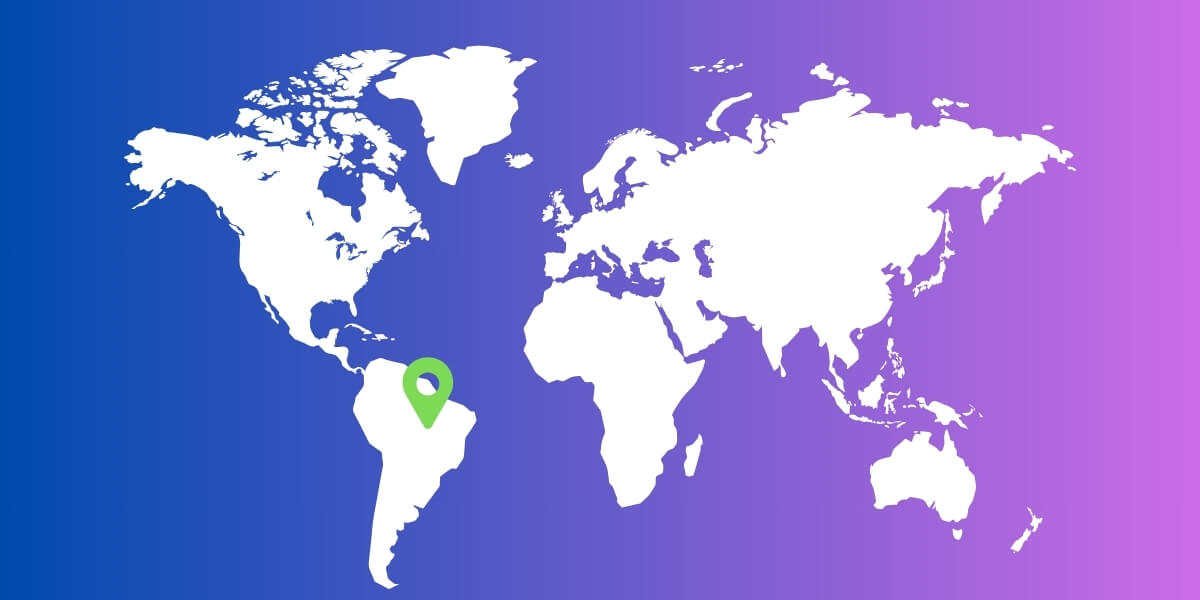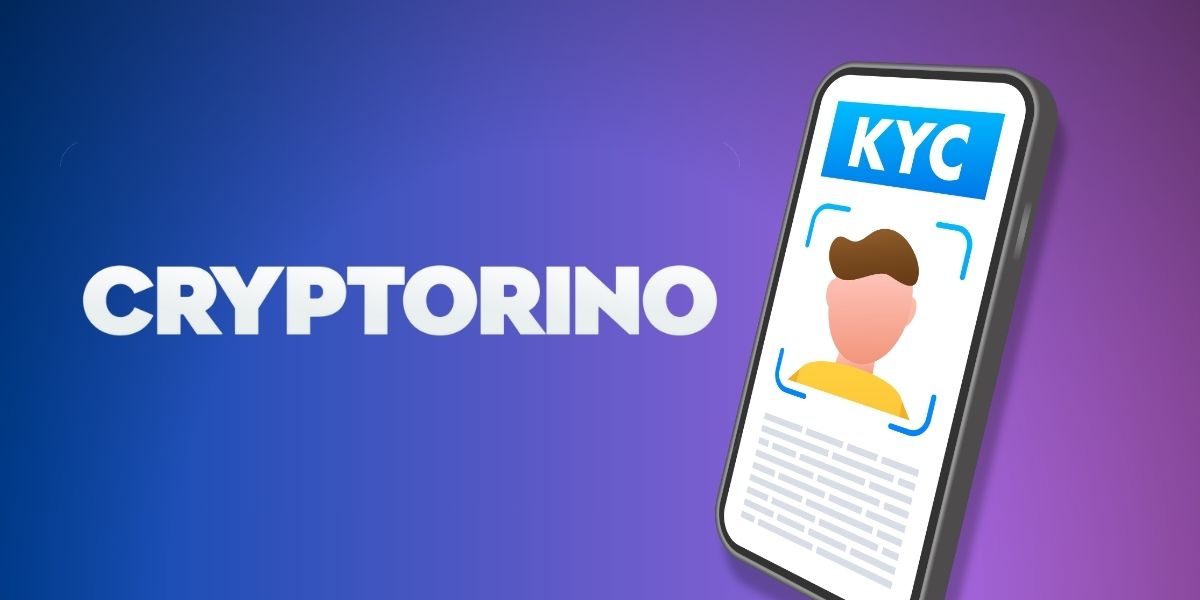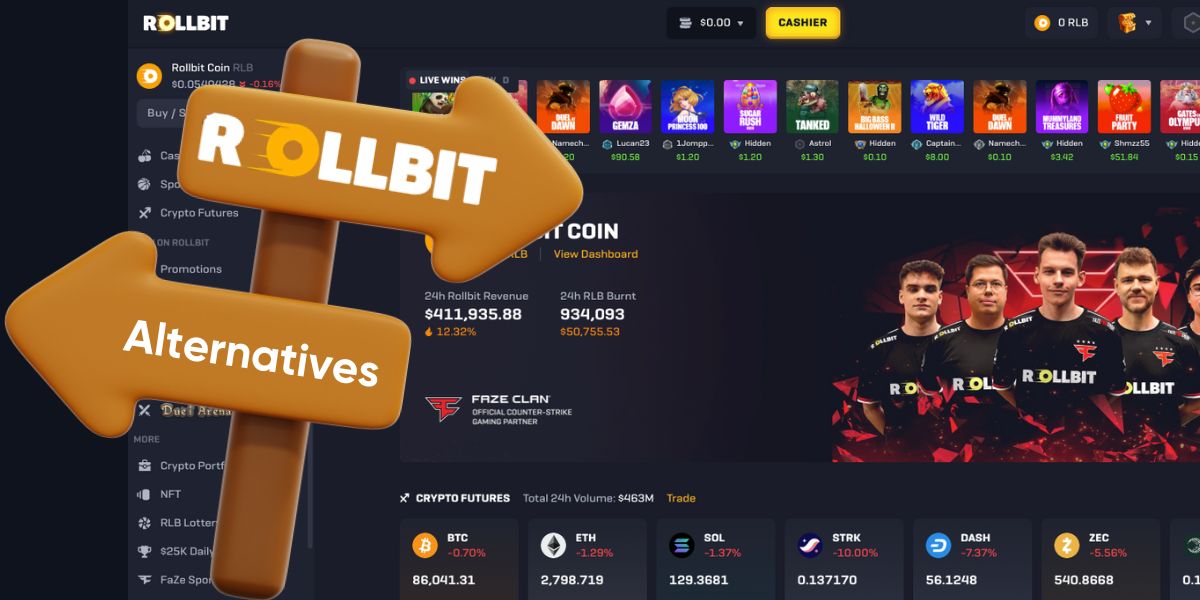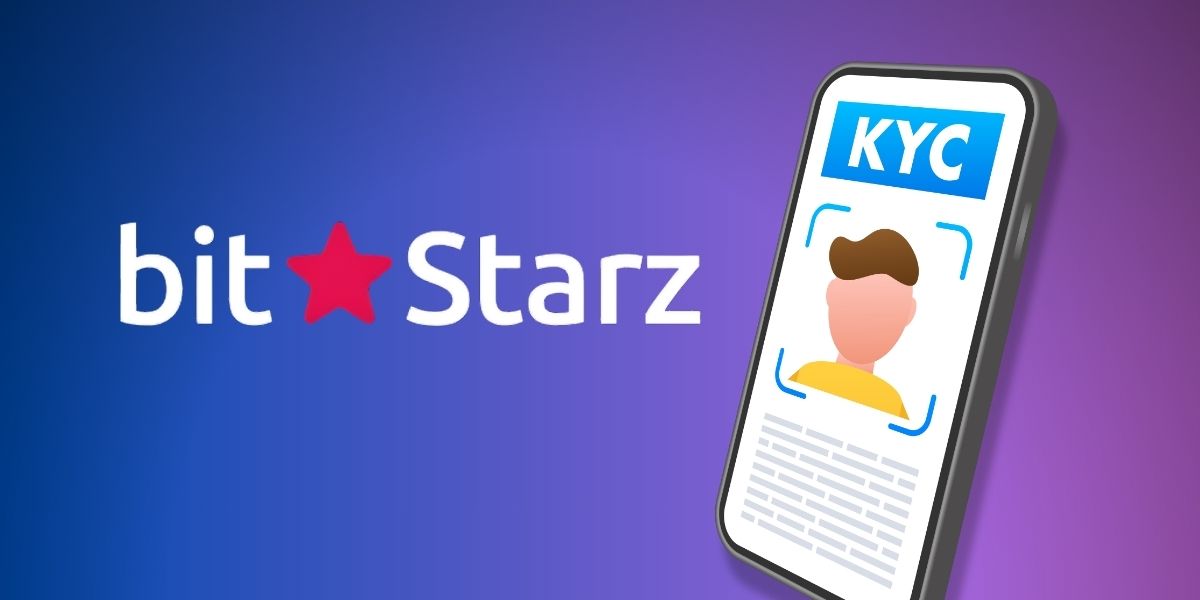
Online and crypto gambling regulations in LatAm – 2026 Overview
Countries from Latin America range from those that approve and regulate crypto gambling and gambling in general to those that restrict them altogether.
The following article contains a detailed overview of online gambling legislation across Latin America, including how specific markets are regulated, the pending laws, and the future of the industry.
Disclaimer: Our team last fact-checked this article in April 2025. Please note that legal frameworks related to gambling and digital currencies are subject to change.
Argentina
Online Gambing Status: Legal (regulated on a provincial level)
Crypto Gambling Status: Illegal
According to the legislation in Argentina, the City of Buenos Aires and 23 of the country’s provinces are entitled to regulate gambling on their territories. For example, in the province of Buenos Aires, Law No. 15,079 and Decree No. 181/2019 are the main regulations regarding online gambling activity.
The province imposes a 25% tax on operators’ gross gaming revenue (GGR), while the city of Buenos Aires levies a 10% tax. The province of Córdoba followed suit and set forth the legislation to legalize online gambling.
In March 2025, Argentina’s National Securities Commission (CNV) finalized rules for virtual asset service providers (VASPs) under General Resolution No. 1058, establishing guidelines for crypto service providers.
Fun fact: Argentine’s President Javier Milei is facing fraud charges over crypto scam promotion of $LIBRA.
Belize
Status: Legal
Crypto Gambling: Status: Legal
Belize is a country known for issuing gambling licenses to offshore operators. Namely, Belize introduced the Computer Wagering Licensing Act in 1995 as a way of attracting foreign iGaming investments. The Gaming Control Board is in charge of regulating the market.
Advanced as its gambling laws may be, Belize has not yet introduced any cryptocurrency legislation.
Bolivia
Online Gambling Status: Legal
Crypto Gambling Status: Illegal
Bolivia’s gambling laws include Law No. 060 on Lottery and Chance Games of November 25, 2010, Supreme Decree No. 0781 and 0782 of February 02, 2011, and Law No. 717 of July 13, 2015, all of which give power to the Gaming Control Authority-AJ to regulate games of chance and skill, like poker, roulette, as well as slots, video poker, and other electronic machines.
The country has taken a much tougher stance on cryptocurrencies, banning them completely in 2014 as it saw cryptos as a way to evade taxes.
Brazil
Online Gambling Status: Legal (sports betting)
Crypto Gambling Status: Illegal
Online gambling, including sports betting and online casinos, became regulated in Brazil starting January 1, 2025, following the enactment of Law No. 14,790/2023. Operators are required to obtain licenses from the Ministry of Finance to offer services legally.
While cryptocurrencies are currently prohibited for sports betting, the Central Bank is in the process of regulating them.
In April 2025, Brazil authorized the legal seizure of cryptocurrency assets, marking a significant shift in its regulatory approach to digital currencies.
Chile
Online Gambling Status: Legal (state monopoly)
Crypto Gambling Status: Legal
Under the current gambling law in Chile, players can bet on football pools with the state-owned gambling company Polla, on the lottery with Lotería de Concepción, and on horse racing with Teletrak. However, a new Bill 035/2022, which has passed through Chile’s Economic Commission of the Chamber of Deputies, would allow private operators to apply for licenses.
As for cryptocurrencies, Chile doesn’t prohibit the use of cryptos and their trading but is yet to roll out a legal framework for their regulation. Cryptocurrencies in Chile are governed by the Fintech Law (Law No. 21.521), which promotes financial competition and inclusion through innovation and technology in financial services.
Colombia
Online Gambling Status: Legal
Crypto Gambling Status: Illegal
Colombia regulates all forms of gambling, with the exception of card rooms, under the Law 643/2001. Even though state companies have a monopoly over the market, private operators operate through concession agreements with the state. The market is regulated by Coljuegos, which authorizes and licenses operators.
In the matter of cryptocurrencies, they are not legal tender and can’t be used for gambling purposes. In fact, the country doesn’t have any direct legislation towards cryptocurrencies except for the guidelines issued by Superintendencia Financiera, the country’s main financial regulatory body, which are directed towards virtual asset service providers.
Costa Rica
Online Gambling Status: Legal
Crypto Gambling Status: Illegal
Even though Costa Rica’s 1922 Gambling Law banned all forms of gambling, subsequent regulations gave way to a booming gambling market.
There are casinos in hotels, while sports betting is operated by state-owned companies. Online gambling is not explicitly allowed, but the country seems to tolerate it as long as it doesn’t service locals and transactions don’t include local banks.
Speaking of banks, the Central Bank of Costa Rica has issued a statement saying that cryptocurrencies are not legal tender and, as such, can’t be used for gambling in the country in any way.
Cuba
Online Gambling Status: Illegal
Crypto Gambling Status: Legal
Since 1959 and the Ley 86 1959, all forms of gambling in Cuba have been illegal. However, the situation with cryptocurrencies is a bit different.
Namely, the Central Bank of Cuba issued regulations on virtual assets providers in 2022, which gives people access to cryptocurrencies that can aid their efforts to circumvent the sanctions. Cubans who bet on offshore gambling sites can, therefore, use cryptocurrencies to fund their gambling.
Dominican Republic
Online Gambling Status: Legal
Crypto Gambling Status: Illegal
Gambling is fully legal in the Dominican Republic, with the Law 351 amended by Law 24-98 serving as the basis for casino gambling regulation, including online casinos.
Sports betting and the lottery are also legal in the Dominican Republic. The country’s main gambling authority is Dirección de Casinos y Juegos de Azar (DCJA), in charge of regulating the entire industry.
The situation with cryptocurrencies is not that favorable. Namely, the Dominican Central Bank has proclaimed that virtual currencies are not backed by the Bank and that they are not legal tender in the country.
Ecuador
Online Gambling Status: Legal
Crypto Gambling Status: Illegal
Ecuador banned all gambling activities in 2011. However, in October 2024, President Daniel Noboa lifted the ban on gambling and sports betting advertisements across media platforms, signaling a shift toward legalization and regulation.
Cryptocurrencies suffered the same fate in 2014 when the government banned the use of Bitcoin and other cryptocurrencies. In 2022, the Governor of the Central Bank announced plans to regulate cryptocurrencies, but as of 2025, no such regulations have been enacted.
El Salvador
Online Gambling Status: Legal
Crypto Gambling Status: Legal
Technically speaking, gambling in El Salvador is illegal. However, the legal framework is very outdated and does not make any explicit mention of online gambling, leaving a legal loophole for players to take advantage of by playing on offshore sites.
In January 2025, El Salvador’s Legislative Assembly amended the Bitcoin Law, removing Bitcoin’s status as legal tender. The change was part of an agreement with the International Monetary Fund (IMF) to secure a $1.4 billion loan.
Guatemala
Online Gambling Status: Illegal
Crypto Gambling Status: Illegal
All forms of gambling, except the lottery, are illegal in Guatemala, as per the 1880 Penal Code.
In March 2025, Guatemala’s government began evaluating the regulation of iGaming to address the unregulated market and potential revenue opportunities.
There are also no regulations related to cryptocurrencies, but the country seems to be thinking about legalizing Bitcoin the same way El Salvador did.
Guyana
Online Gambling Status: Legal
Crypto Gambling Status: Illegal
Gambling in Guayana is regulated according to the Gambling Prevention Act CHAP 9:02, which paved the way for casino operators, sports betting shops, and lotteries to legalize their products. The Gaming Authority of Guayana is in charge of regulating the market and issuing licenses.
n February 2025, Vice President Bharrat Jagdeo stated that Guyana is not ready to adopt cryptocurrency, citing the need for a major financial overhaul before considering such a move.
Haiti
Online Gambling Status: Legal
Crypto Gambling Status: Legal
Gambling in Haiti has been legal since the 1960s, with a number of land-based casinos open for business and operating from high-end hotels. The National Lottery of Haiti (LISA) is in charge of the lottery and bingo draws.
Still, the lack of comprehensive modern legislation has given players an opportunity to gamble on offshore gambling sites without any legal repercussions. The situation is largely the same with cryptocurrencies, but the technology seems to already have a firm foothold in the country.
Honduras
Online Gambling Status: Legal
Crypto Gambling Status: Illegal
Honduras legalized land-based casinos and bookmakers in 1977, according to the Ley de Casinos, Juegos de Envite o Azar, decree 488 of 1977. The law does not account for online gambling, so players regularly opt for offshore gambling platforms.
The situation with cryptocurrencies is much like in most LatAm countries – Honduras does not accept cryptocurrencies as legal tender, as per a press release by the Central Bank of Honduras.
Jamaica
Online Gambling Status: Legal
Crypto Gambling Status: Illegal
The Betting, Gaming and Lotteries Commission (BGLC) is actively working to regulate online gambling. In February 2025, the BGLC urged unlicensed gaming operators to regularize their operations to comply with Jamaican laws.
As per the announcement from the Bank of Jamaica, cryptocurrencies are not legal tender and can’t be used for gambling purposes.
Mexico
Online Gambling Status: Legal
Crypto Gambling Status: Illegal
According to the Federal Gaming and Raffles Law of 1948, all forms of gambling are prohibited except for sports betting and raffles.
The Regulation of the Federal Gaming and Raffles Law of 2004 provided a more detailed legal framework, whereas the 2013 Presidential Decree allowed the use of gambling machines, all of which are under the auspices of the Ministry of Interior (SEGOB), through its Gambling and Raffles Bureau.
Online casinos are not regulated, though, and neither are cryptocurrencies.
Nicaragua
Online Gambling Status: Legal
Crypto Gambling Status: Legal
Nicaragua enacted a new Gambling Act in 2011, under which all forms of gambling were made legal, including online casinos and sportsbooks. The 2014 amendments and the 2015 Casino Control Act provided more guidance on the rules imposed by the Oficina de Casinos y Salas de Juegos, the country’s chief regulator under the patronage of the Ministry of Finance.
As for cryptocurrencies, Nicaragua has not yet enacted any laws, leaving the industry unregulated.
Panama
Online Gambling Status: Legal
Crypto Gambling Status: Legal
Panama is one of the world’s leading jurisdictions when it comes to legalizing offshore casinos. The Panama Gaming Control Board (JCJ), the country’s regulated, passed Resolution No. 65 of October 25, 2002, which legalized internet gambling and allowed it to legalize offshore casinos. However, the locals can’t bet on the sites. The complete list of regulations can be found on JCJ’s site.
Panama’s National Assembly announced that a cryptocurrency regulated the use of crypto assets for any commercial transactions, which effectively means players can use cryptos for gambling, even though they are not allowed to gamble at Panama-licensed offshore casinos.
Paraguay
Online Gambling Status: Legal
Crypto Gambling Status: Illegal
In January 2025, President Santiago Peña enacted Law 7438, which overhauled Paraguay’s gambling laws to end existing monopolies and foster a more competitive market environment.
Paraguay has been progressing toward adopting comprehensive cryptocurrency legislation, with efforts to regulate crypto-related activities and integrate digital assets into the formal economy.
Peru
Online Gambling Status: Legal
Crypto Gambling Status: Illegal
Peru has recently enacted a new gambling law titled Law N° 31,806, which tripled the cost of online iGaming licenses compared to the previous Law N° 31,557. Foreign brands are allowed to enter the market and offer online casino gambling and sports betting.
Peru is also yet to authorize a cryptocurrency law. The country maintains a cautious yet open approach to cryptocurrencies. While digital assets are not recognized as legal tender, their use is not prohibited.
Suriname
Online Gambling Status: Legal
Crypto Gambling Status: Illegal
The first gambling law in Suriname was approved in 1962, but it wasn’t before 2009 that the Suriname Gaming Control Board was founded to supervise land-based casinos.
As for online gambling, there is no comprehensive licensing system in place, with Suribet being the only licensed online betting site. Suriname also lacks regulations in regard to cryptocurrencies, which are not legal tender in the country.
Uruguay
Online Gambling Status: Legal
Crypto Gambling Status: Illegal
Casino gambling has been legal in Uruguay since 1989 under the auspices of the General Directorate of Casinos. In August 2022, the Uruguayan Senate passed online gambling legislation, effectively legalizing all forms of online gambling.
In October 2024, Uruguay enacted a cryptocurrency law after two years of deliberation. This legislation recognizes cryptocurrencies as virtual assets and designates the Central Bank of Uruguay as the primary regulator for crypto service providers
Venezuela
Online Gambling Status: Legal
Crypto Gambling Status: Legal
Venezuela is a leader in cryptocurrency gambling in Latin America. The President of Venezuela, Nicolas Maduro, first approved casinos in 2013 and in 2022 announced that Ávila National Park’s Hotel Humboldt Casino will operate with Petro (PTR), Venezuela’s state cryptocurrency.
Amid economic instability and hyperinflation, many Venezuelans have turned to cryptocurrencies as a means of financial survival. The use of digital currencies, particularly stablecoins like USDT, has grown significantly, offering an alternative to the volatile bolívar.
Final thoughts
There you have it, your guide to gambling regulations in the Latin America region.
Are you playing from somewhere other than LatAm, and wondering if crypto gambling is legal in your own region?
We have dedicated guides covering the following regions:








